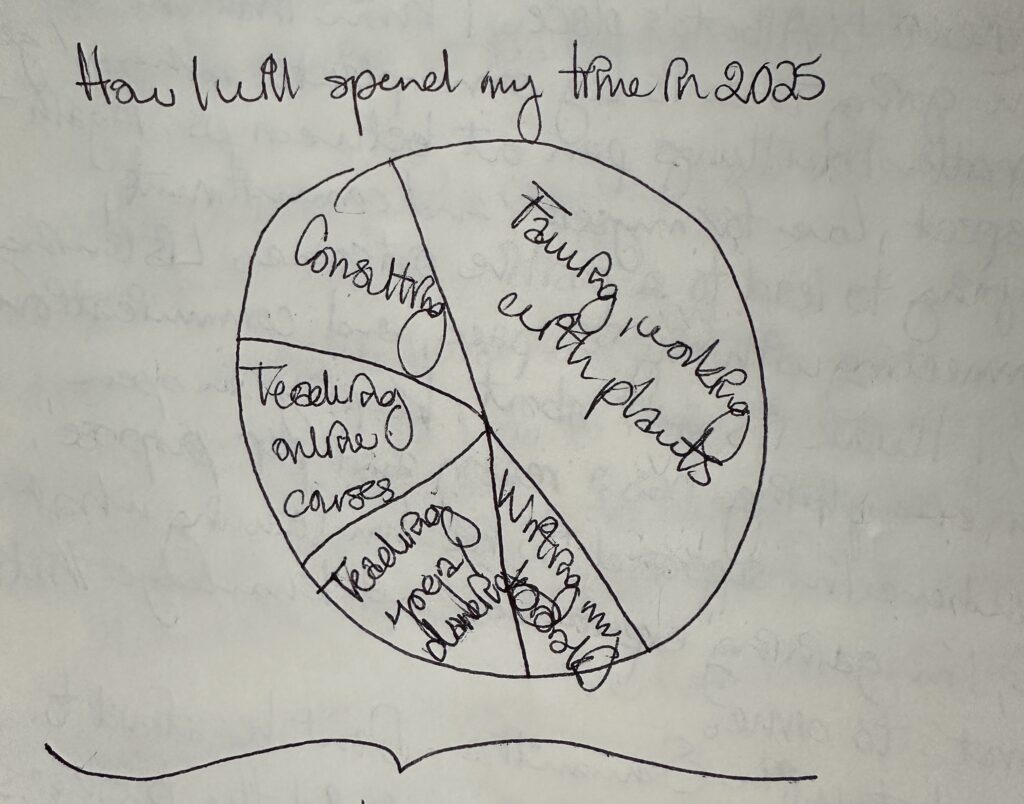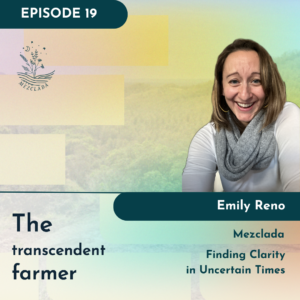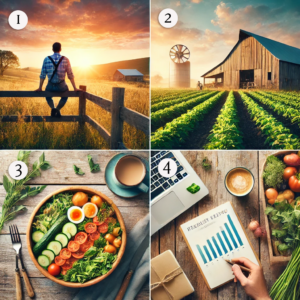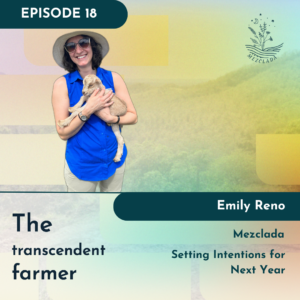Farming isn’t a job where you clock in and clock out. It’s a journey of growth and self-reflection.
There’s a reason why even if you have 9 years of experience, you’re still considered a ‘beginning’ farmer according to the USDA. I’ve learned a ton over the last couple of years of conducting interviews through The Transcendent Farmer podcast, including this idea that farming, just like yoga, is a practice. There is no end destination. It’s a moving target, just as your own personal growth as a human and your identity change over time. As such, farms often (but not always) end up becoming a reflection of the primary operator’s personal passions and interests.
I want to offer a few tips to cultivate a more mindful approach to farming, business, and life, that will hopefully leave you less chronically stressed and able to enjoy the present moment.
Tip #1: Protect some time in the morning for your own energy
A trap that we often fall into is waking up to turn off an alarm, immediately checking missed messages or notifications on our phone, hopping in the shower, and getting on with the rest of the day’s routines.
But I must say, there’s so much lost opportunity when you give your energy away to others first, before taking some time for yourself. My gratitude journaling practice, meditation practice, reading for pleasure, and exercise have all become, for the most part, non-negotiables at this point in my morning routine, BEFORE I do stuff for work.
I heard something brilliant a while back that we are reflections of the content that we consume…in the same way, we are also reflections of our daily habits and routines.
For me, these non-negotiables are the things I’m willing to get up early for, even if it means that I have to go to bed earlier to make them a priority. Those few minutes to come back to my body, set intentions for the day, move energy through movement of some kind, and reading (or listening) to a good book have been game changers for me.
It all started with prioritizing drinking a cup of water first thing every morning. And then I started adding on to my habits, slowly. No matter where you start, and I recommend starting small, make it so easy that it seems dumb that you would even create that goal. You can read more about this in Day 46 of the 60-Day Financial Fitness Challenge, where I go deeper into taking stock of your daily habits and rituals.
Tip #2: Steward your body as you steward the land
You are your biggest asset as the owner (or future owner) of your farm. Even if you’re in a position as a farm laborer right now, you can do yourself a favor by setting up good habits now to invest in your health. It took me many years to unlearn this idea that you have to experience years of chronic pain or ‘suck it up’ before it’s really necessary to go see help or a doctor. I’m now an advocate of preventative health measures, the 80-20 rule (80% of your output comes from 20% of your work), and overall, living a healthy lifestyle, including everything from my hydration levels to lifting weights to my nutrition.
Why? Everything changed when I became my own business owner. I realized that I was the only one responsible for creating opportunity (and financial stability) for myself, and that I shouldn’t depend on others to bring in new projects, contracts, or other kinds of collaborative projects I wanted to work on. As soon as I started to take responsibility for those outcomes, everything shifted for me. And I’m currently in a position where when I’m sick, I don’t have PTO to pay me for my time or productivity lost. I don’t have other staff members who can fill in for me.
In this way, my perspective around the importance of my health changed quite a bit. Most farmers are in the same boat, with healthcare plans alone often so expensive that they are unobtainable, or they lean on a spouse for an employer-sponsored health care plan.
The takeaway here is to put in as much love and attention to your body as you do your soil health. It’s a reciprocal relationship. In the same way that we think about ‘take care of the land and it will take care of you’, so too is it true that ‘when you take care of your body, it will take care of you’.
Tip #3: Schedule your own annual, DIY retreat for financial planning & intention setting
This is one of my absolute FAVORITE things to do. In fact, just earlier this week I was journaling about how I want things to change from 2024 to 2025, which you can see below. Right below the image, I wrote down “If this were true, what would need to change and/or what would I need to put in place to allow this to happen?”

I sketched this out as a pie chart, thinking about percentage of time, and even the way that my days are set up. An ideal day for me is to spend a few hours a day working outside/with plants, and also have a bit of time on the computer to work on creative projects. Something I find really interesting about this is that ‘travel’ wasn’t a high priority. And that’s probably because of how much traveling I’ve done this last year. I’m so ready to be grounded in a place, in a home, and have my established routines and community. People I see on a regular basis, get to know, and can make plans with.
But let’s get back to what a retreat focused on intention setting and financial planning would actually look like. What would make something like that effective? Here are some metrics that I would use to evaluate my own, but I encourage you to create your own personalized list:
- I have a clear sense of how much I want to earn in the coming year and what those revenue streams are (At least as an aspiration. They don’t have to exist currently.)
- I’ve outlined the kinds of feelings and experiences that I want to have in the coming year
- I’ve taken time to celebrate what I’ve achieved in the previous year and noted the ‘lessons learned’.
- I have an outline of the additional resources that I will need to reach my goals for the coming year (again, I don’t have to know where they will come from, but I at least have my list) – whether that’s in people power, financial support, physical infrastructure, etc.
- I’ve taken time to identify where I’d still like to grow personally to step into the person that can embody and hold this new identity or level of wealth. I absolutely LOVE to do this. Thinking about my current personality characteristics, what’s holding me back from chasing my dreams, and thinking about what might help me grow or push me out of my comfort zone to become the person that I think is capable of doing what I want to.
You, of course, will have your own goals and metrics for what ‘success’ looks like, whether that’s the ability to take a vacation (for all of you animal lovers out there and folks in the livestock space, I feel you!), put more money towards your investment account, spend more time with extended family, etc.
I’m hopeful that these few tips provide a little bit of encouragement as you navigate your farming journey and bring greater intention to it. This is, indeed, a decades-long investment – in yourself, in the land, in your community. So go out there and get it!
P.S. – If you’re looking for a bit more accountability and support as it relates to crafting your career in this space, or changing directions, you may want to consider 1:1 business development coaching with me. You can learn more aquí. Alternatively, if you’re interested in learning more about the Farmer Wellness Summit Mezclada is planning for 2025, sign up for the newsletter to be the first to find out when registration is open.




